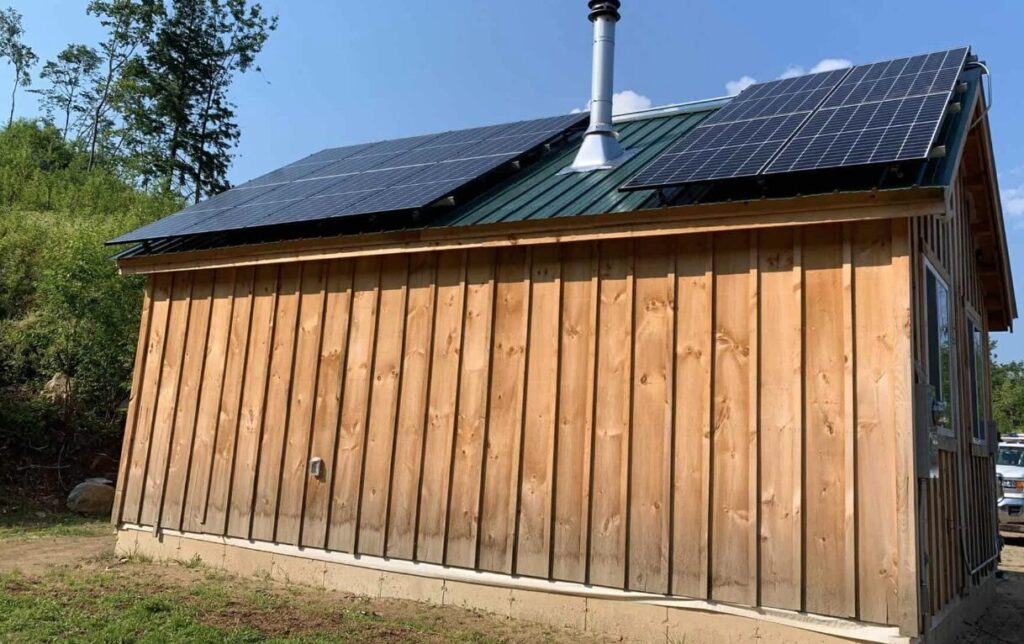In many remote areas, getting reliable energy is a major challenge. Off-grid communities often rely on costly and inefficient energy sources, which hinder their development. However, the introduction of solar energy storage systems offers a sustainable and reliable solution. In this blog, we will explore how solar home systems can help off-grid communities.
What is a Home Solar Power System?
A solar home system is a renewable energy solution designed to harness sunlight and convert it into usable electricity for residential purposes. It allows homeowners to generate their power sustainably and independently.
The system is typically composed of several interconnected components that work together to capture solar energy, convert it into electricity, and store it for future use. This ensures that even during periods of low sunlight, people can have a reliable, consistent, and energy-efficient home.
Key Components of a Solar Home System
A solar home system typically includes several key components:
- – Solar Panels: Convert sunlight into electricity. The size and number of solar panels needed depend on the household’s energy requirements.
- – Inverter: Converts the direct current (DC) from the panels into alternating current (AC) for household appliances.
- – Battery Storage: Stores excess energy generated during the day for use at night or during cloudy periods, ensuring a consistent power supply.
- – Charge Controller: Regulates the amount of electricity flowing from the panels to the battery, preventing overcharging and ensuring battery longevity.
The Challenges of Off-Grid Energy Access
Off-grid communities, often located in remote or rural regions, grapple with several challenges. High energy costs are a significant burden, as traditional sources like diesel generators can be prohibitively expensive and require regular refueling.
Additionally, fossil fuel-based energy sources contribute to environmental degradation, including air pollution and climate change. The lack of infrastructure in these areas further complicates the extension of conventional power grids, making reliable energy access a persistent issue.
How Solar Home Systems Can Transform Off-Grid Communities
Solar home systems offer many benefits that can greatly improve off-grid communities, transforming their daily lives and promoting long-term sustainability. Here’s how:
- – Cost-Effective Energy: Once installed, solar panels provide a low-cost source of energy. The initial investment in solar technology has decreased over time, making it more affordable for communities to adopt. The low operational and maintenance costs make solar power even more financially attractive.
- – Environmental Benefits: Solar energy is clean and renewable. By reducing reliance on fossil fuels, solar systems help decrease greenhouse gas emissions and other pollutants, contributing to improved air quality and a reduction in global warming.
- – Energy Independence: Solar home systems empower communities to generate their electricity, reducing dependence on external sources such as diesel generators or costly power imports. This autonomy enhances energy security and stability, especially in remote areas where infrastructure development is limited.
- – Reliable Power Supply: Solar systems provide a consistent and reliable source of electricity, even in remote locations where traditional power grids are unavailable. Battery storage ensures that energy is available during nighttime or cloudy weather, reducing interruptions and providing a stable power supply.
- – Sustainable Development: By utilizing solar power systems, off-grid communities align with sustainable development goals. Solar systems promote long-term energy sustainability, supporting broader efforts to combat climate change and ensure a more sustainable future.
The Transformative Power of Solar Home Systems
Solar home systems are a game-changer for off-grid communities. These clean energy systems offer eco-friendly and reliable energy. As technology improves over time, solar power’s potential to uplift remote areas grows. Embracing solar energy leads to greater independence, improved quality of life, and a more sustainable future for these communities.
How To Clean Your Solar Panels the Right Way


